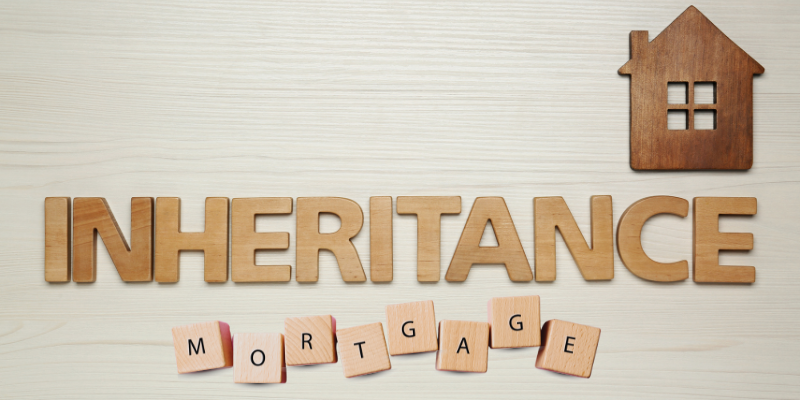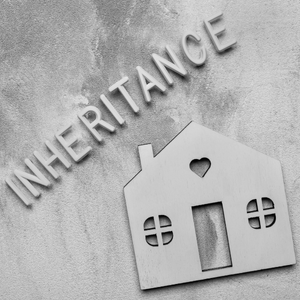
Nobody tells you the hard truth about inheriting property with debt attached: you’re suddenly responsible for payments you never agreed to make, on a house you might not even want, in a state with rules that don’t exist anywhere else.
Alaska’s inheritance laws are different. There are things that catch families off guard, like native American corporation lands, restricted deeds, and transfer rules. While you’re dealing with loss and family logistics, the mortgage clock keeps ticking, and every month you wait costs money you probably don’t have.
But there’s still light at the end of the tunnel, though. You have more options than the bank wants you to know about. Let us walk you through what actually happens next!
What’s The Probate Process in Alaska?
Probate is Alaska’s official way of moving someone’s stuff to the people who should get it. Most inherited houses have to go through this court process before you can legally call them yours.
The court will pick someone called a Personal Representative to handle all the paperwork and make sure any debts get paid first. Yep, they’re like the estate’s designated adult.
This whole process usually takes six months to a year, sometimes longer if things get messy. Alaska does have shortcuts for smaller estates where you can skip the full court drama and use something called an Affidavit for Collection.
Some houses bypass probate entirely if the owner set up special deeds or joint ownership ahead of time. That’s why smart planning saves everyone headaches later.
Can You Keep a House You Inherit with a Mortgage in Alaska?

You can keep a house you inherit with a mortgage in Alaska. There’s actually a federal law that has your back here. The bank cannot force you to pay off the entire mortgage immediately just because the owner has died. They can’t kick you out or demand you qualify for a brand new loan either.
You can literally step into the previous owner’s shoes and keep making the same payments they were making.
Most mortgage companies will work with you to get your name on the loan because they’d rather have someone making payments than deal with an empty house. If you ever decide you don’t want to keep the property, there are cash home buyers in Alaska and nearby cities who can purchase the house quickly, even if it still has a mortgage.
Alaska gives surviving spouses even more protection. If the house was owned jointly with survivorship rights, you automatically own the whole thing without any court drama. You can also refinance later if you want better terms or need to buy out other family members who just want cash.
What Are Your Options if You Inherit a House with a Mortgage in Alaska
There are four main options when you inherit a mortgaged house in Alaska, and each one will affect your finances and your future completely differently. You need to pick the one that actually makes sense for your life, not what your cousin’s neighbor thinks you should do.
Keep the House and Take Over Payments
Here, you move in and start making the mortgage payments. This works great if you actually want to live there or if you’ve been paying crazy rent somewhere else anyway.
You’ll have to call the mortgage company and do some paperwork, but it’s basically a death certificate plus proof you’re the heir, which equals a done deal.
Your monthly payment will stay exactly what it was before unless you decide to refinance down the road. This could save you lots of money if the interest rate is better than what banks are offering now.
Note, though, you’re signing up for everything that comes with owning a house. This included property taxes, homeowners’ insurance, and even fixing the garbage disposal when it decides to die on a Sunday.
Sell the Inherited Property
You sell the house and use the money to pay off the mortgage. Whatever’s left over goes straight into your bank account.
This will get you out of the whole situation without dealing with ongoing payments and wondering why the upstairs toilet is making that weird noise again. Could be a nice chunk of change if the house went up in value over the years.
You’ll need extra paperwork to prove you can legally sell it, but your real estate agent handles most of that paperwork. If you want a quicker option without going through the traditional market, there are investor home buyers in Anchorage, AK, and nearby cities in Alaska who can purchase the property fast and help you avoid delays.
Just don’t stop making mortgage payments while you’re trying to sell. The bank doesn’t care that you’re planning to sell. They still want their money every month until you actually close on the sale.
Rent Out the Property

In this option, you’ll become a landlord and will let tenants cover the mortgage with their rent money. If you price it right, you might even pocket extra cash every month on top of covering the loan.
This is ideal if it’s in a decent rental area or if the mortgage payment is way less than what people pay for rent around there.
Being a landlord means dealing with calls about broken air conditioners during heat waves and screening potential tenants who seem perfectly normal until they ask if they can install a hot tub in the living room.
Alaska has landlord-tenant laws in place that you’ll need to learn, but if you can handle the responsibility, you can keep the property as an investment. You can potentially make a bank when property values go up.
Let the Property Go into Foreclosure
You can also walk away and let the bank take it back. Sounds drastic, but sometimes it’s the smartest financial move, especially if you owe way more than the house is worth. Yes, it’ll ding your credit score, but how much depends on whether you officially took over the loan or just inherited the property.
This makes sense when you can’t afford the payments, can’t sell enough to cover what you owe, and don’t want to keep throwing good money after bad. Don’t let guilt or family pressure talk you into making payments you can’t afford. Sometimes, cutting your losses is the most practical choice, even if it feels like giving up.
Steps to Take When You Inherit a House with a Mortgage in Alaska
You no longer need to lie awake at 3 AM and wonder what you’re supposed to do next. Follow these steps, and you’ll know exactly where you stand.
Step 1: Determine Your Legal Position and Rights
First things first, figure out what you actually inherited. Get the will if there is one, and find out if you own the whole house or just part of it.
Multiple heirs make everything way more complicated because everyone has to agree on big decisions. Nobody wants to deal with family issues over money when you’re already dealing with losing someone important.
Check how the previous owner held the title because this affects everything. Joint ownership or Transfer on Death deeds might mean you already own it without going through probate court. This stuff will determine your timeline and what moves you can actually make, so don’t just guess and hope for the best.
Step 2: Contact the Mortgage Lender Immediately
Call the mortgage company right now and tell them what happened. Don’t put this off for weeks because they have special departments for exactly this situation, and they’ll walk you through their process step by step.
They’ve handled thousands of these cases before, so they know what they’re doing and won’t jerk you around with unnecessary processes.
You need to bring your death certificate and proof that you’re the legal heir when you call or visit. Ask them for all the loan details, including current balance, monthly payment amount, interest rate, escrow account info, everything.
Get it all in writing so you’re working with actual numbers instead of guessing about what you can realistically afford.
Step 3: Collect Essential Documents
Next is finding everything you need. You want the death certificate, will, property deed, recent mortgage statements, and homeowners’ insurance paperwork. Also, grab any records of recent home improvements or major repairs because these affect the house value and matter for tax purposes if you decide to sell.
Check for liens, judgments, or other debts attached to the property while you’re digging through files. You need to know about any financial surprises in the background before you make your final decision.
This stuff can completely change your options, so don’t skip the boring paperwork part even though it’s tedious.
Step 4: Continue Making Mortgage Payments (If Keeping the Property)
If you think you might keep the house, do not let those mortgage payments slide even for one month. Missing payments triggers late fees and starts the clock ticking toward foreclosure.
Probate court won’t protect you from that mess. The mortgage company wants its money every month, no matter what’s happening in your personal life.
Set up temporary payment arrangements with the lender while you sort everything out legally. Some companies will let you make payments from your personal account temporarily while the inheritance gets finalized.
Keep detailed records of every payment you make because you’ll need to prove you’ve been taking care of the property responsibly.
Step 5: Assess the Property Value
You need to know what you’re actually working with here before making any major decisions. Getting an accurate property value will help you make smart choices about keeping, selling, or renting the house.
Don’t base life-changing financial decisions on what you think the house might be worth based on that one episode of House Hunters you watched.
Get a professional appraisal if you can afford the cost. Appraisers will give you the most reliable valuation, and lenders often require one anyway if you’re planning to refinance or officially assume the mortgage.
If money’s tight right now, check out online tools. They’ll give you ballpark figures to work with, but don’t treat those estimates as the truth.
Step 6: Understand Tax Implications
Taxes might not be the most thrilling topic, but they can seriously affect your bottom line if you don’t plan for them properly. Alaska’s tax situation is actually favorable compared to most states, but you still need to understand what you’re facing before taking action with the property.
Capital Gains Tax
When you inherit property, you get what’s called a “stepped-up basis” for tax purposes. This means the property’s value resets to what it was worth when the owner died.
This reset can significantly reduce or even eliminate capital gains taxes if you decide to sell your property. A capital gains tax calculator can help you estimate potential taxes based on the inherited value rather than the original purchase price. If you hold the property for several years and it continues to appreciate, you may only owe capital gains tax on the increase in value that occurs after you inherited it.
Property Tax Responsibilities
Property taxes will be your responsibility immediately when you inherit the house, whether you want them or not. These taxes don’t stop just because the owner died or because you’re still figuring out what to do with the property.
That said, you need to factor these into your monthly costs if you’re thinking about keeping the house. You should also make sure they’re current if you’re planning to sell soon.
Estate Tax Considerations
Alaska doesn’t have a state estate tax, which is actually great news for most people dealing with inheritance. Federal estate tax only kicks in for really large estates, like those over $13 million.
Most inherited houses won’t trigger estate tax issues. However, if you’re dealing with a super valuable property or a complex estate with multiple properties, you may need to get professional help to make sure you’re not missing anything important.
Step 7: Work with Estate Planning Professionals
Don’t try to handle complicated inheritance situations by yourself, especially when significant money is involved.
Estate attorneys, tax professionals, and financial advisors can save you way more money than they cost by helping you avoid expensive mistakes that could haunt you for years. They deal with this stuff every single day while you’re figuring it out for the first time.
Find professionals who actually know Alaska law inside and out because the state has rules that lawyers from other states might not understand fully. Ask about flat fees for specific services instead of open-ended hourly billing that can get super expensive if things drag on longer than expected.
Step 8: Handle Multiple Heirs and the Estate
If you’re sharing the inheritance with siblings or other family members, get everything in writing before making any major decisions.
Family relationships can get ugly when money and property are involved, even in families that normally get along perfectly fine and never fight about anything.
Resolving Disputes Among Beneficiaries
You might need to buy out other heirs if you want to keep the property for yourself or sell it and split the proceeds if nobody actually wants to keep it.
Some families agree to rent it out and split the rental income, but that requires ongoing cooperation and shared decision-making about tenants, repairs, and expenses. Figure out who’s responsible for what before any problems come up.
Buying Out Other Heirs
If you want to keep the house but other heirs just want their share in cash, you’ll need to come up with money to buy them out at fair market value. This might mean getting a new mortgage, using a home equity loan, or refinancing the existing mortgage to pull out cash for the buyout.
Get the property professionally appraised first so everyone agrees on what each person’s share is actually worth.
What Challenges Will You Possibly Encounter When Inheriting a House with a Mortgage
Real problems can pop up when you inherit a house with a mortgage. These can completely derail your plans if you don’t see them coming from a mile away. These challenges can turn what should be a simple inheritance into a full-blown financial headache.
Outstanding Mortgage Exceeds Property Value

This is the worst-case scenario. You inherit a house that’s worth less than what’s still owed on the mortgage. Maybe the previous owner bought at the peak of the market in 2007 or the neighborhood went downhill after they purchased it.
Either way, you’re staring at a property that’s financially underwater before you even make your first big decision.
You can’t sell your way out of this because the sale won’t even cover the loan balance. This leaves you stuck with leftover debt. Keeping the house means making monthly payments on a property that’s basically losing you money every single month.
Walking away through foreclosure will start looking pretty attractive when you’re dealing with serious negative equity. But remember that foreclosure will definitely ding your credit score for years.
Property in Poor Condition
Houses don’t maintain themselves on their own. If the previous owner was elderly, sick, or just not handy with repairs, basic maintenance probably got pushed to the back burner for years.
You might inherit a house with a leaky roof that’s been “temporarily” fixed with buckets, outdated electrical that sparks when you flip certain switches, or foundation issues that could cost thirty grand to fix properly.
Our advice would be to get a professional inspection before you commit to keeping the property because you need to know exactly what kind of money pit you’re potentially dealing with.
Sometimes, the repair costs are so large that walking away makes way more financial sense than trying to fix everything. Other times, strategic repairs can bump up the value enough to make keeping or selling the house actually worthwhile.
Reverse Mortgages
Reverse mortgages also create hell for heirs who weren’t expecting this problem. These loans don’t require monthly payments while the owner is alive, but they come due immediately when the owner dies.
You typically have just six months to either pay off the entire balance or sell the house, though you might get extensions if you’re actively working on a solution.
The loan balance on a reverse mortgage keeps growing every month because interest gets added to what’s owed instead of being paid regularly. This means you might owe way more than the original loan amount by the time you inherit.
The only consolation is that most reverse mortgages are non-recourse loans, so you’ll never owe more than the house is actually worth when you sell it.
Delays in the Probate Court Process
The probate process moves at typical government speed, which means it crawls along slower than rush hour traffic on a Friday afternoon. The timeframe can be stretched by court backlogs, missing paperwork, family disputes over who gets what, or complex estates with multiple properties.
Meanwhile, mortgage payments keep showing up in your mailbox every single month.
These delays put you in an impossible position because you can’t make major decisions about the property until probate officially closes. You also can’t stop making payments without risking foreclosure.
The mortgage company doesn’t care that you’re waiting for court approval to sell or transfer the house. They just want their money on time every month, while you’re stuck in legal limbo.
Alaska-Specific Property Laws and Inheritance Rules
Alaska isn’t just another state when it comes to inherited property. It’s got rules and property types that exist nowhere else in the country. These situations can completely change how your inheritance works.
Restricted Property and Native Allotments
Restricted property includes Native allotments and townsite lots that were originally granted by the federal government decades ago.
This property can only be transferred with approval from the Bureau of Indian Affairs, and it goes through a completely separate federal probate process instead of the Alaska state courts. You’re dealing with federal judges and BIA procedures that most lawyers never encounter in their entire careers.
The federal probate process has completely different requirements for valid wills than Alaska state law does. Your will might be perfectly legal under Alaska law, but get rejected by the federal system because it doesn’t meet their specific witness requirements or other technicalities.
When that happens, the property goes to heirs under federal intestacy rules instead of your intended beneficiaries, which can mess up your entire estate plan.
Alaska Transfer on Death Deeds
Alaska allows Transfer on Death deeds that automatically transfer real property to named beneficiaries when the owner dies, completely bypassing the probate process.
These deeds save tons of time and money, but they also create their own potential headaches because the property transfers immediately upon death, whether the beneficiary actually wants it or not.
Transfer on Death deeds can be revoked or changed while the owner is still alive, but once they die, the transfer happens automatically and becomes final. If you’re named as a beneficiary on one of these deeds, you need to decide quickly whether you want to accept the property or disclaim your inheritance entirely.
You can’t just sit around thinking about it for months while mortgage payments pile up and property taxes come due.
Key Takeaways: What Do You Do When You Inherit a House with a Mortgage in Alaska
Inheriting a house with a mortgage in Alaska will give you real options, but you need to act quickly and understand your rights. You can keep the house and take over payments, sell it and pocket the proceeds, rent it out for income, or walk away entirely.
Federal law protects your right to assume the existing mortgage without qualifying for a new loan. Meanwhile, Alaska’s unique property laws, like Transfer on Death deeds and Native corporation rules, can significantly affect your inheritance.
If you’re dealing with an inherited property in Alaska and want to sell quickly without the hassle of traditional real estate, get a cash offer from Anchorage Home Buyers! Contact us now at (907) 331-4472! We specialize in inherited properties and can close in weeks, not months!
Helpful Alaska Blog Articles
- How to Sell a House Without a Realtor in Alaska
- How to Sell a House When Going Through a Divorce in Alaska
- Fixing Up a House to Sell in Alaska
- Cost to Replumb a House in Alaska
- Can the Seller Back Out of a Contract in Alaska?
- Capital Gains Tax After Selling a House in Alaska
- Does a Seller Pay Closing Costs in Alaska?
- What Do You Do When You Inherit a House with a Mortgage in Alaska
- How to Remove a Name from a Deed in Alaska in 2025
- How to Do a Sale by Owner in Alaska
- Cost for Asbestos Testing in a House in Alaska
- How to Sell a House with a Code Violation in Alaska
- How to Sell a Condemned House in Alaska

